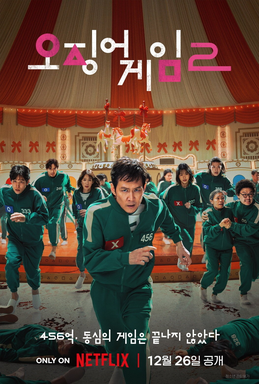There’s no film this year that is anything like Megalopolis. It’s a one-of-a-kind movie, which can be taken as a compliment or a criticism, with its uniqueness. With $120 million taken out of Francis Ford Coppola’s pocket to finance the film and part of Coppola’s winery being sold to create the motion picture, Megalopolis is one of the most insane passion projects in film history.
Megalopolis tells the story of Cesar Catalina, an architect who envisions a utopian society to improve the future of New Rome, a failing city that combines elements of Ancient Rome with the backdrop of New York City. However, Cesar is met with criticism from his rival Franklyn Cicero, the mayor of New Rome, who opposes the idea of a futuristic society with traditional ideas and values. Catalina, however, is a genius and practically a superhero, as he can stop time and won the Nobel Prize for inventing Megalon, the material he will use to create Megalopolis. Throughout the film, Cesar falls in love with Julia Cicero, the daughter of the mayor. The first half of the film sufficiently develops the conflict between Cesar and Cicero, showing its effect on the citizens of New Rome.
However, the main issue with the film is the second half. It starts to fall apart, giving up on the character arcs developed to start the movie. Also, it starts to feel convoluted and drags throughout the end of the second act. We hear Cesar talk about how great and beneficial his idea for New Rome is, but the audience doesn’t get much insight into what Cesar’s vision is, even though it plays a crucial role in the film’s message. There are numerous scenes where Cesar shows us what Megalopolis is and what it would look like, but it’s hard to figure out the actual purpose. What will it do to help the failing city of New Rome? The only thing that seems beneficial from it is that it looks futuristic. While the potential for a complex character in Cesar is evident, his character is not written well enough to reach said potential, and his development is completely faltered. He’s introduced as this egocentric and visionary genius who, despite winning a Nobel prize, has his vision held back. As he goes through the movie with so many new changes in public opinion of his plan, it feels that there are no moral consequences for Catalina. He doesn’t change – all that happens is that he stays passionate about his idea of Megalopolis.
With Laurence Fishburne’s narration throughout the film, it’s quite obvious that the film is comparing the fall of Rome to our world today, which helps in a film this convoluted. Moreover, the characters’ names and events make it clear that it’s trying to draw connections between the two time periods. Visually, the film is mesmerizing. It has many stunning establishing shots, and colors are used in such a unique way. I think this helps the world building, which is the best aspect of the film. It nicely incorporates elements of ancient Rome in the New York City setting, unlike anything I’ve seen in a motion picture before. It helps reinforce the comparison between the two time periods, and it’s just incredible to look at.
The screenplay is very flawed, with the film trying to take itself very seriously, but it occasionally comes off as unintentionally funny. It even seems that it could be a satire, but the problem is that it’s difficult to tell. It’s in this gray area where it has satirical elements scattered all over the film. It exaggerates certain aspects of society for comedic purposes, such as the political state, and the CGI used to present Megalopolis feels so broad and generic that it feels as if it is making fun of utopian societies presented in media. This can also be seen in the performances, as Aubrey Plaza and Shia LaBeouf are comical, embracing the silliness in the script. On the other hand, Adam Driver, Giancarlo Esposito, and most of the other actors try to give serious performances. Most of the performances are good and make the movie entertaining, but they’re not on the same page with each other. And I think this idea could work, but not when it almost opposes the idea that change is needed to progress as a civilization. Especially not when it’s a passion project that has been in the works for over 40 years.
One of the reasons the film is getting poor reception from fans and critics alike is because it doesn’t function like a normal movie. It gets very clunky and confusing, but in order to enjoy it, the audience can’t look at it like it’s normal. It’s a huge and ambitious collection of ideas that does not entirely work. Even with this being a huge mess, it’s still refreshing to see a unique and big cinematic spectacle like this. Megalopolis is so chaotic that it always holds your attention and is unpredictable in the craziest ways. Although I did not love this, and I will say that most audiences are bound to strongly dislike this, I believe it is a must-watch for how monumental it is to one of the greatest filmmakers’ filmographies and how ambitious it is. Rating: 6/10






